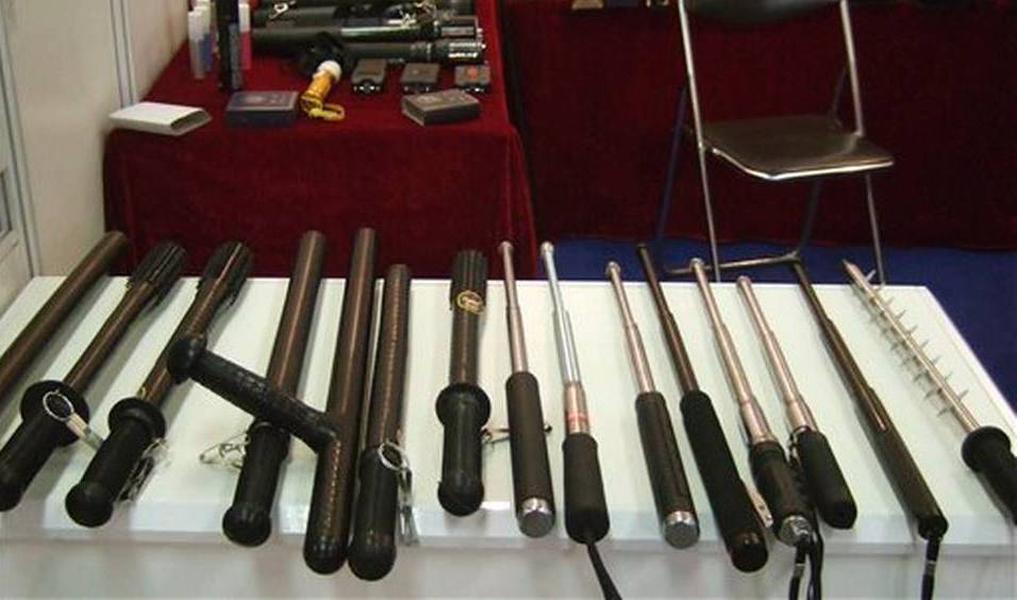China is a major exporter of torture instruments, Amnesty International says


A free daily email with the biggest news stories of the day – and the best features from TheWeek.com
You are now subscribed
Your newsletter sign-up was successful
China has become a major manufacturer and exporter of torture devices and other cruel and inhumane law enforcement tools, Amnesty International and the Omega Research Foundation say in a report released Tuesday. A decade ago, 28 companies developed, manufactured, and exported law enforcement tools, but that number has ballooned to more than 130 companies.
Some examples of the inherently cruel instruments cited by Amnesty are spiked batons, electric prods, chained hand-and-neck cuffs, and a particular restraining chair that handcuffs detainees in painful, rigid positions and has "no legitimate law enforcement use," the London human rights group says. "There is no excuse whatsoever for allowing the manufacturing and trade in equipment for which the primary purpose is to torture or inflict cruel, inhuman, or degrading treatment on people," Amnesty's Patrick Wilcken said in a statement.
China denies that its police and other law enforcement agents use torture on inmates, and torture is explicitly banned in China, but there are widespread allegations of gross mistreatment of detainees. On Monday, China's state media reported that a court in northeastern China had convicted three police officers and four others for torturing suspects, killing one and restraining another in an iron chair while prodding him with an electric shock baton.
The Week
Escape your echo chamber. Get the facts behind the news, plus analysis from multiple perspectives.

Sign up for The Week's Free Newsletters
From our morning news briefing to a weekly Good News Newsletter, get the best of The Week delivered directly to your inbox.
From our morning news briefing to a weekly Good News Newsletter, get the best of The Week delivered directly to your inbox.
Even if China itself doesn't torture inmates, Amnesty says, it certainly exports its cruel wares to repressive governments in Asia and Africa. You can read the 38-page report at Amnesty International.
A free daily email with the biggest news stories of the day – and the best features from TheWeek.com
Peter has worked as a news and culture writer and editor at The Week since the site's launch in 2008. He covers politics, world affairs, religion and cultural currents. His journalism career began as a copy editor at a financial newswire and has included editorial positions at The New York Times Magazine, Facts on File, and Oregon State University.
